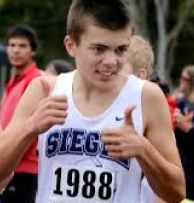College basketball teams are gearing up for the 2024-25 season, and the student team manager is a key staff member on every campus. That’s Ty Bolling’s role at Temple University.
Ty is the nephew of TSC columnist Louis Bolling. I sat down with Ty recently, and here’s what I learned.
McElwain: What’s Your advice to anyone wanting to be a basketball coach?

Photo courtesy Temple Men’s Basketball on Instagram
Bolling: You will always be learning new things and meeting new people. Always have an open mind about things. It’s a journey to the top.
McElwain: What are the highlights of your career thus far?
Bolling: They are going to the 2024 American Conference tournament in Fort Worth, TX, going on a big run, and taking down the University of Houston Cougars, the #1-ranked team nationally. I also participated in the NCAA Academy for Student Managers in Rockhill, SC.
McElwain: What are your future goals in the sports world?
Bolling: Well, I have another two seasons left at Temple. I want to do Analytics or IT for the NBA league offices, as it relates to my coursework as a management information systems major here at Temple.
McElwain: Who are your top five basketball influences?
Bolling: It is the Temple University Men’s Coaching staff, for sure. I spend hours and hours helping them prepare our guys for the season and assisting them as needed. Temple support staff includes a range of people: facilities staff, housekeeping workers, the director of basketball operations, athletic trainers, the media team, and equipment staff. They are a massive part of the program, and I have been blessed to get to know each of them. We collaborate on projects/operations and contribute to the success of Temple basketball, both men and women.
McElwain: Where do you see yourself in 30 years?
Bolling: In 30 years, I could see myself as a professional in either the NBA league offices or a high-ranking defense industry position. In the NBA, I might lead major initiatives, shape league policies, and work directly with teams and executives. In the defense sector, I could be in strategic roles overseeing complex projects and innovations, contributing to national security, and managing large teams or divisions.
McElwain: Where do you see the sport of basketball in 30 years?
Bolling: Basketball will probably be drastically altered due to technological breakthroughs, adjustments to player development, and modifications to the way people watch and interact with the sport. AI-assisted training and scouting might start early in middle school, and youth development could become more data-driven. Top talent may enter competitions earlier due to the rise of international academies, which resemble the approach taken now by European soccer clubs.














